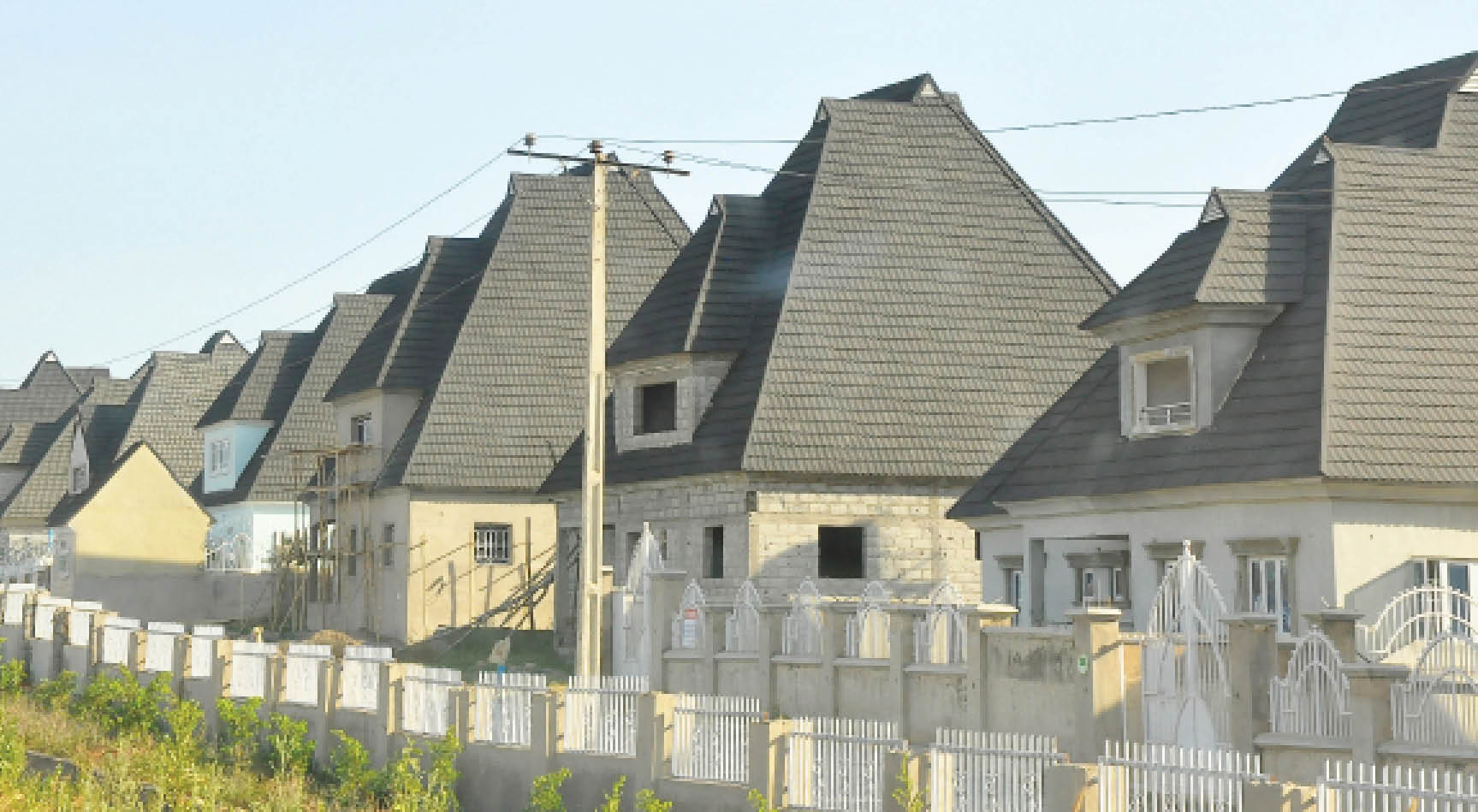‘Legislate before taxing unoccupied houses in Abuja’
Mr Adamu Kasimu is a former chairman of the Nigerian Institution of Estate Surveyors and Valuers (NIESV), Abuja chapter. In this interview, he speaks on the recent pronouncements on taxation of properties by government. The Federal Capital Territory Administration (FCTA) has said it will tax unoccupied houses, what do you think of that? We […]

FILE PHOTO
Mr Adamu Kasimu is a former chairman of the Nigerian Institution of Estate Surveyors and Valuers (NIESV), Abuja chapter. In this interview, he speaks on the recent pronouncements on taxation of properties by government.
The Federal Capital Territory Administration (FCTA) has said it will tax unoccupied houses, what do you think of that?
We need to be clear first, are we talking of unoccupied houses, vacant houses or abandoned houses?
What is the difference?
There are differences. When you say a property is unoccupied, does it mean that if I have a furnished house that I left just like that, it is unoccupied? It is not. So, what makes a property unoccupied is a reference to an abandoned property because there is no property as far as I am concerned that is not occupied.
It is either occupied by the owner or occupied by the tenant or by squatters, so we have to be careful in choosing these words, at times we make reference to properties that are not occupied but may be vacant for just a short period. Are we now saying that the owner cannot be given time to secure tenant for his properties? Is it abandoned because the owner is no longer alive? Or someone just bought the property for investment purpose? Or is there a family problem or other legal issues? We have to answer these questions.
Is it right for government to take such properties and rent them out?
It is still not right, but with a caveat. Section 44(2.a) of the 1999 Constitution guarantees the right of any Nigerian to own property in Nigeria, and anything that will take that property must be done in accordance with the law. One such exception is taxes. Each property has to be considered on its own merit, you can’t just make a sweeping categorisation.
Another question is, is the property being taken as a punitive measure because the owner refused to rent or sell? I think it is wrong. Countries that have adopted such methods did so to achieve some funding of affordable housing for the less privileged in the society.
What other options are available to government in order to address the problem of unoccupied houses?
This calls for action by the relevant authorities like the FCTA. There was a time we had re-certification of titles, every title holder submitted his document, so the FCTA can go further to ask for revalidation of developed properties within the FCT. When you do that, it will serve as an opportunity to take stock of the number of houses and establish gaps for the purposes of taxation or otherwise. It would make it easier.
Remember that most house owners in FCT are not the title holders, most people bought them and the titles are still vested in the original owners; some are deceased, some are mere tenants, so we need to take stock.
As an estate surveyor and valuer, what is the ideal tax that should be levied on an abandoned property?
A property should be able to pay its own tax; that is the capacity to pay. You have to carry out a proper valuation and ascertain value within the context of the income of that property.
That is why before you start to tax properties there must be legislative action. This will define who will pay. There must be a law.
Would it not amount to double taxation?
It might, it depends on how the law is structured. The legislative action will define the basis of valuation. The law will tell us which houses are exempted, like diplomatic houses, houses occupied by retired civil servants, children’s homes, etc.
The law must provide for all these, and should also provide for appeal, that is for those who may feel they are being overtaxed. So, there should be an appeal tribunal of sorts, and also the law should provide for punishment for those who flout the laws.
